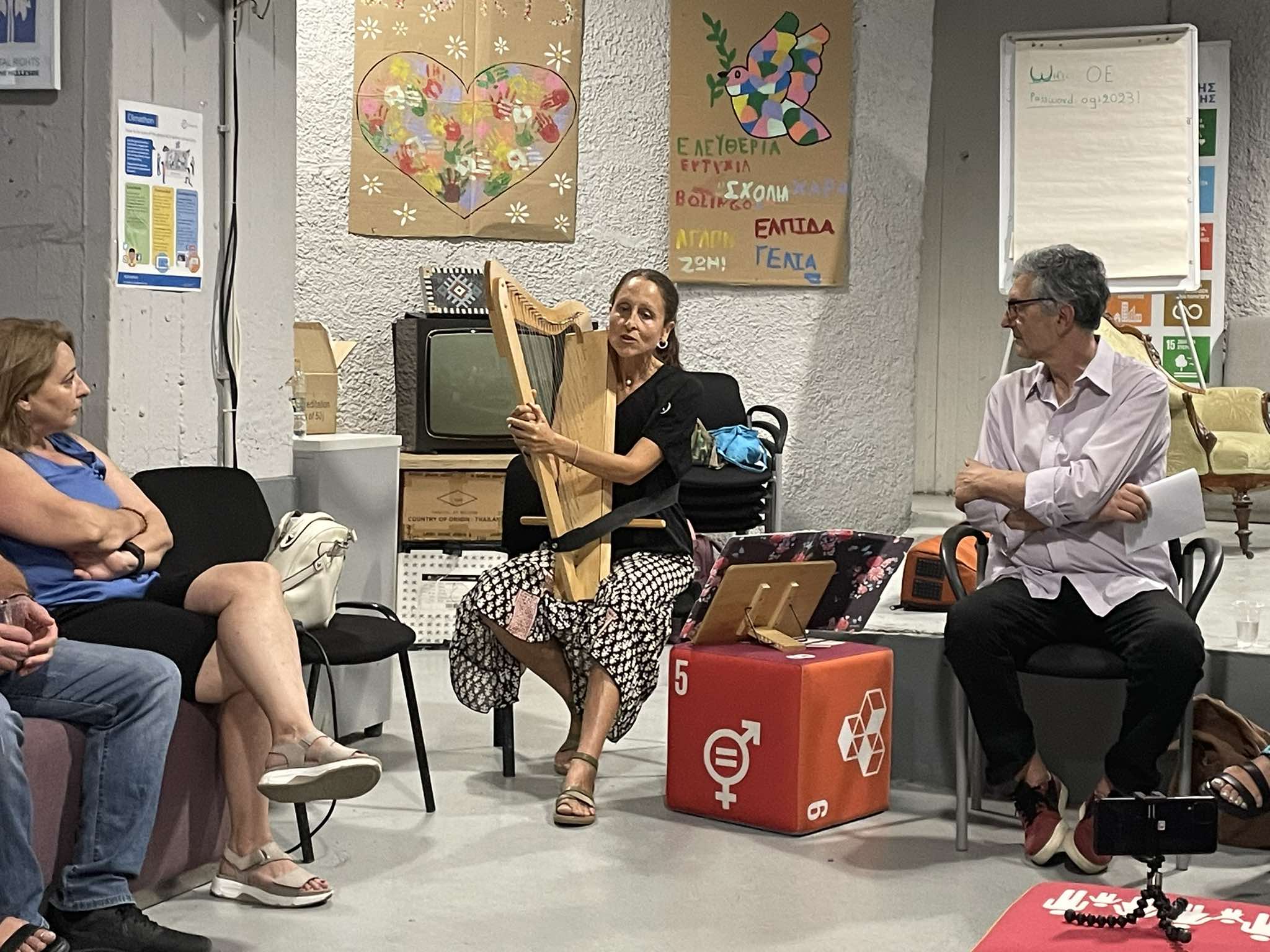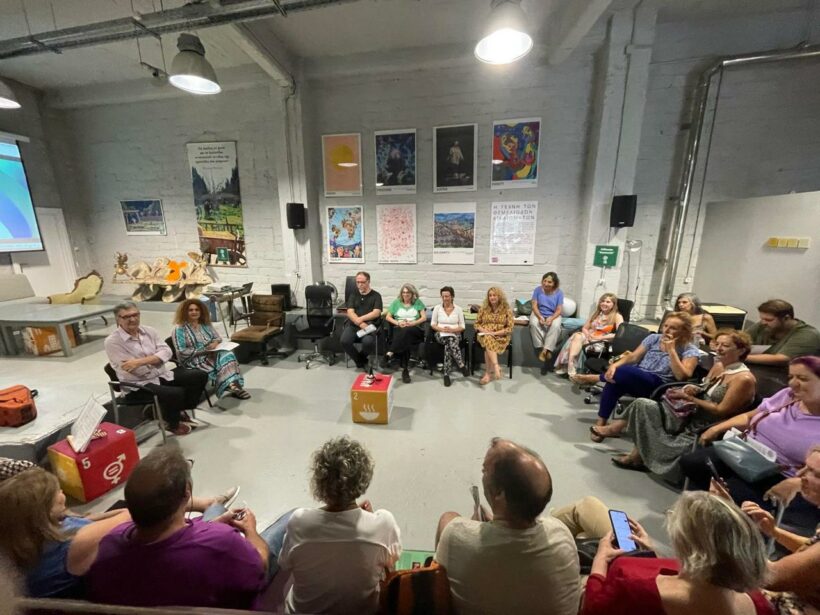Accompanying people who are going through critical moments due to illness or approaching the end of their lives is a noble deed full of meaning and sense. It is an action that does not require particular personal skills, but it requires a certain inner situation. Essentially, it means allowing them to express, in a correct and appropriate way for the other person, the love, kindness and compassion that we all have within us. When this happens, “accompaniment” becomes “art”. My body, my heart and my mind come together in a valid act whose sole purpose is the well-being and inner freedom of the other heart and mind I accompany.
A beautiful discussion on this topic took place in Athens, last Wednesday, September 4, on the occasion of the presentation of the book “The Art of Accompanying”, by Victor Piccinini, in charge of the Center of Humanities of Buenos Aires. Piccinini explained the tools and practices offered by the book on companionship at the end of physical life and for palliative care. Those who attended showed great interest, which created a very beautiful atmosphere and allowed for dialogue and exchange of experiences of those who spoke. Maria Angeli framed the event with therapeutic harp atmospheres, primarily an instrument of soothing and palliative care, as she explained.

Photo by Evita Paraskevopoulou
In October, the first workshops on the art of accompaniment will begin in Athens. Experiences and practices that help change the way we look at the transition from the threshold of life, both our own and those of our loved ones who are nearing their physical end. The organizers of the event, members of New Humanism, hope that these workshops, together with palliative care, will be a source of inspiration for a profound inner transformation in the face of the fear of loneliness and the taboo of death.
Below is a video of the first part of the event which includes an introduction by Marilena Livanou (in Greek), a few words by Maria Angelis (also in Greek) and the presentation of Victor Piccinini’s book in Spanish and with simultaneous interpretation by Giosta Liapopoulou.










